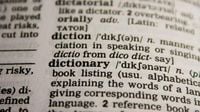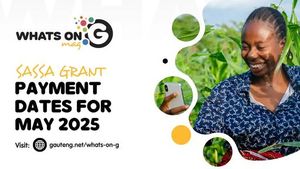The Oxford English Dictionary (OED) has recently expanded its lexicon to include the Tagalog word "gigil," a term from the Philippines that captures a delightful yet intense feeling often experienced in the presence of extreme cuteness. This addition, announced on March 27, 2025, reflects the OED's ongoing commitment to embracing words that resonate with English speakers but lack direct equivalents in the language.
Pronounced "ghee-gill," the word "gigil" describes a feeling so powerful that it compels individuals to clench their fists, grit their teeth, or even pinch and squeeze whatever they find irresistibly adorable, be it a baby, a fluffy puppy, or anything else that elicits such a response. According to the OED, this term can function both as a noun and an adjective, allowing for expressions like "That puppy is making me gigil," showcasing its versatility in everyday conversation.
In addition to "gigil," the latest update to the OED has introduced several other terms from various languages, highlighting the dictionary's acknowledgment of the evolving nature of English. Among these additions is the word "alamak," a colloquial exclamation used in Singapore and Malaysia to express surprise or dismay. The OED noted that the origins of "alamak" are uncertain, with suggestions that it may derive from Arabic or Portuguese influences.
Danica Salazar, the OED's executive editor, emphasized the importance of incorporating these untranslatable words, stating, "Wouldn’t it be useful for English speakers to have a specific word for sunlight dappling through leaves or a word for the action of sitting outside enjoying a beer?" This perspective underlines the dictionary's mission to fill lexical gaps in English by borrowing terms from other languages that express unique concepts.
As part of this linguistic enrichment, the OED has also added a variety of culinary terms from Southeast Asia, reflecting the region's rich food culture. Among the new entries are "ketupat," a small rice cake wrapped in woven palm leaves, and "otak-otak," a dish made from ground fish or seafood mixed with spices and coconut milk. Additionally, the beloved breakfast dish "kaya toast," which consists of toasted bread spread with a sweet coconut jam, has made its way into the dictionary.
The update also includes words from South Africa, such as "yoh!" an expressive exclamation used to convey emotions ranging from surprise to admiration. Another addition is "sharp-sharp," a versatile term that serves as both a greeting and a compliment, illustrating the dynamic nature of language as it evolves across cultures.
Furthermore, the OED has recognized terms from the Irish lexicon, including "debs," which refers to a formal social event for students, and "class," a term of approval popularized by the Northern Ireland sitcom "Derry Girls." These additions reflect the diverse linguistic influences that shape English today.
In total, the OED's latest update features 42 new words, many of which are untranslatable or have no direct English equivalents. This effort not only enriches the English language but also acknowledges the global nature of communication in an increasingly interconnected world. The inclusion of words like "gigil" and "alamak" highlights the importance of cultural representation in language, allowing speakers to express feelings and concepts that resonate with their experiences.
The OED, which boasts a comprehensive collection of over 600,000 words, continually reviews thousands of suggestions from various sources each year. This includes contributions from its own reading programs, crowdsourced appeals, and linguistic analysis of contemporary language use. As language evolves, so too does the dictionary, ensuring that it remains a relevant and authoritative resource for English speakers.
As we embrace these new words, it becomes evident that language is not static; it is a living entity that grows and changes with us. The addition of "gigil" and other terms from around the world serves as a reminder of the beauty and complexity of human expression, inviting us to explore the rich tapestry of language that connects us all.









